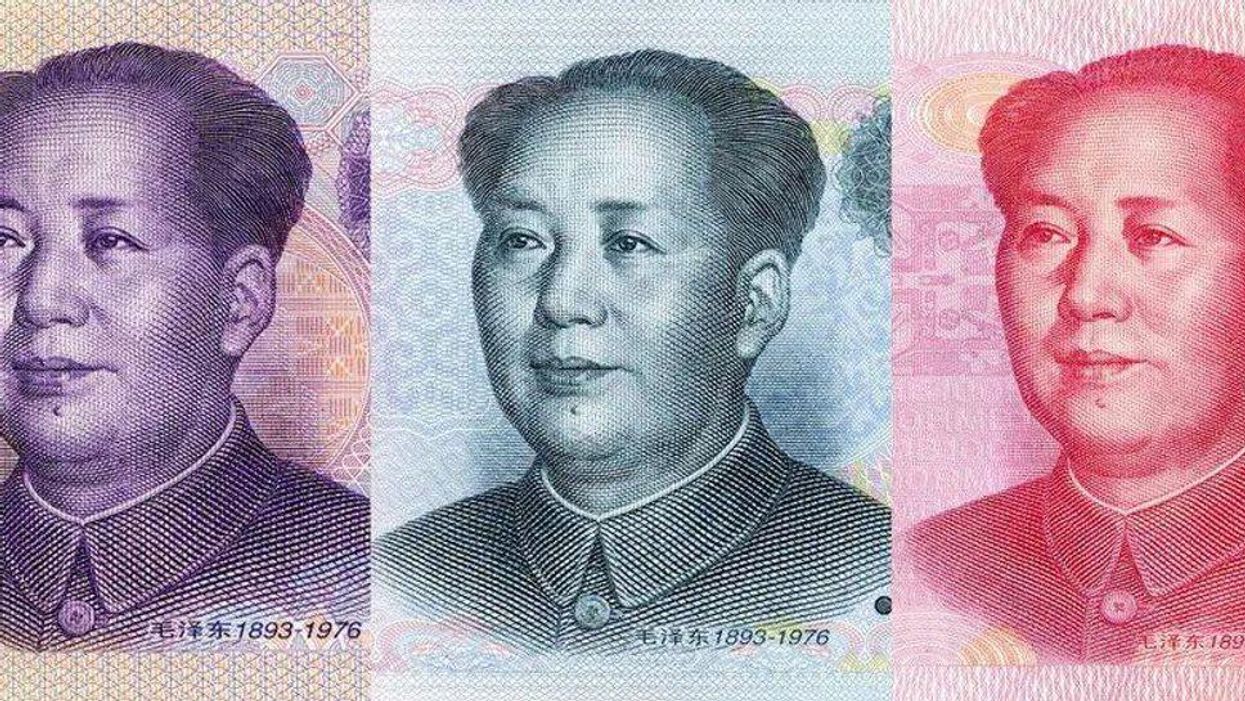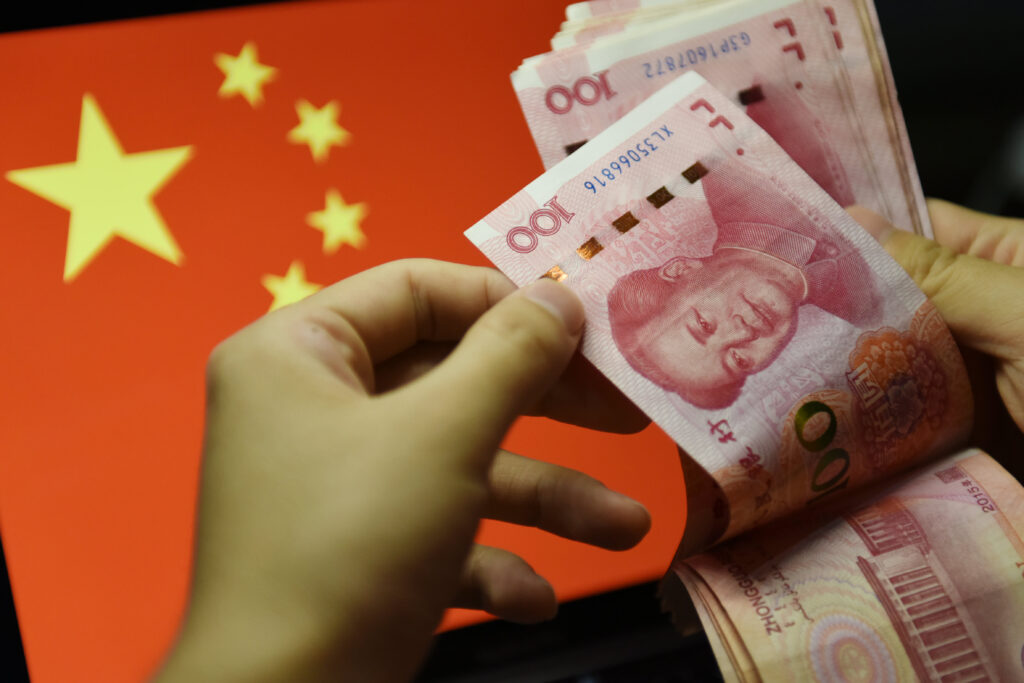
In recent years, the world has witnessed a groundbreaking development in the realm of digital currencies, with China taking the lead in this revolution. China’s introduction of the E-Yuan, its new digital currency, has brought about a seismic shift in the traditional monetary systems we have known for centuries. This blog post delves into the intricacies of the E-Yuan, examining its key features, implications for financial privacy, centralized control, international impact, advantages, challenges, and potential effects on traditional banking systems and financial institutions. Join us as we explore how China’s digital currency, the E-Yuan, is changing the game.
Table of Contents
What is the E-Yuan? Understanding China’s New Digital Currency
The E-Yuan, also known as Digital Currency Electronic Payment (DCEP), is China’s central bank digital currency (CBDC). It is a digital representation of the Chinese yuan, the country’s official currency. Unlike traditional forms of money, which are physical in nature, the E-Yuan exists purely in digital form. It is designed to be used as a medium of exchange, just like cash or traditional electronic payment methods, but with enhanced functionalities and features.
Key Features of the E-Yuan: Security, Traceability, and Transparency
One of the standout features of the E-Yuan is its robust security measures. Built on a blockchain-like technology, the digital currency incorporates advanced cryptographic techniques to ensure secure transactions. This technology enhances the authentication and encryption of transactions, reducing the risk of fraud and counterfeiting. The E-Yuan also boasts traceability and transparency, allowing authorities to track the flow of funds, thereby aiding in the prevention of illicit activities such as money laundering and terrorism financing.
To ensure the reliability and security of E-Yuan transactions, the Chinese government has partnered with reputable financial technology companies like yuan-pay-group.net. Their expertise in blockchain technology and secure financial transactions has contributed to the development of a resilient and efficient digital currency ecosystem.
Implications for Financial Privacy: How the E-Yuan Challenges Anonymity
While the E-Yuan offers enhanced security features, it does raise concerns about financial privacy and anonymity. Traditional forms of currency provide individuals with a certain level of privacy, as transactions can be conducted without revealing personal information. However, the E-Yuan, being a digital currency, is inherently traceable, and transactions can be linked to specific individuals.
This increased level of traceability challenges the notion of financial anonymity. While some argue that it strengthens anti-money laundering efforts and reduces illicit activities, others express concerns about potential infringements on personal privacy. Striking a balance between privacy and regulatory oversight is crucial as the adoption of the E-Yuan expands.
Centralized Control: The Role of the Chinese Government in E-Yuan Transactions

Source: logicalread.com
Unlike decentralized cryptocurrencies such as Bitcoin, the E-Yuan is subject to centralized control by the Chinese government. This control provides the government with the ability to monitor and regulate transactions, ensuring compliance with regulations and policies. The government can also implement monetary policies more effectively, influencing the flow of funds and managing the economy.
The centralized nature of the E-Yuan has its advantages and disadvantages. On the one hand, it allows for greater control over the currency and facilitates targeted economic interventions. On the other hand, it raises concerns about the potential misuse of power and censorship. Striking a delicate balance between control and individual freedom is crucial for the successful implementation of the E-Yuan.
International Impact: How the E-Yuan May Influence Global Economies
China’s immense economic influence, coupled with the introduction of the E-Yuan, has the potential to reshape the global economic landscape. As one of the world’s largest economies, China’s adoption of digital currency could contribute to the growing acceptance and adoption of digital currencies worldwide. The E-Yuan’s international impact can be seen through various avenues.
– Firstly, the E-Yuan has the potential to challenge the dominance of the US dollar as the global reserve currency. With China being a major player in global trade and finance, the widespread use of the E-Yuan in international transactions could reduce the reliance on the US dollar and reshape the dynamics of the global monetary system. This shift could lead to increased diversification of currency reserves among central banks, creating a more multipolar currency landscape.
– Furthermore, E-Yuan’s integration with international payment systems could facilitate cross-border transactions, making them faster, more efficient, and potentially reducing transaction costs. This integration could also bolster China’s economic relationships with its trading partners, as it would enable seamless and secure transactions, promoting trade and investment flows.
– China’s Belt and Road Initiative (BRI), a massive infrastructure development project spanning multiple countries, could also be influenced by the adoption of the E-Yuan. By facilitating digital payments along the BRI routes, the E-Yuan could streamline financial transactions and enhance economic connectivity among participating nations. This could strengthen China’s position as a global economic leader and promote its geopolitical interests.
– Moreover, E-Yuan’s international impact extends beyond trade and investment. It could potentially serve as a vehicle for China to project soft power and promote its economic and technological advancements. By spearheading the development and adoption of a state-backed digital currency, China positions itself as a leader in financial innovation and digital transformation, potentially influencing other countries to explore similar initiatives.
Advantages of the E-Yuan: Faster Transactions and Reduced Costs

Source: cnbc.com
One of the key advantages of the E-Yuan is its potential to revolutionize the speed and efficiency of financial transactions. Traditional banking systems often involve intermediaries, resulting in longer processing times. With the E-Yuan, transactions can be completed directly between parties, bypassing intermediaries and reducing processing delays. This instantaneous nature of digital transactions can greatly enhance the speed of cross-border payments and improve overall financial efficiency.
Additionally, the adoption of the E-Yuan can lead to reduced transaction costs. Traditional payment systems, such as wire transfers or remittances, often involve fees levied by banks and other intermediaries. The E-Yuan, with its direct peer-to-peer nature, has the potential to eliminate or significantly lower such fees, making transactions more affordable and accessible to individuals and businesses.
Potential Effects on Traditional Banking Systems and Financial Institutions
The introduction of the E-Yuan poses potential implications for traditional banking systems and financial institutions. As digital currencies gain popularity, there is a possibility of reduced demand for traditional banking services. Individuals and businesses may opt for digital wallets and direct digital transactions, bypassing traditional bank accounts. This shift could impact the profitability and relevance of traditional banks, requiring them to adapt and innovate to remain competitive in the evolving financial landscape.
Financial institutions will also face the challenge of integrating the E-Yuan into their existing systems and processes. They will need to ensure compatibility and compliance with the digital currency ecosystem, potentially requiring significant investments in technology infrastructure and expertise. Collaboration with government authorities and fintech companies, such as yuan-pay-group.net, could prove crucial in navigating this transition successfully.
However, traditional banks and financial institutions also have the opportunity to embrace the E-Yuan and leverage its benefits. They can explore partnerships and collaborations with digital currency platforms, offering services that bridge the gap between traditional banking and digital currencies. By embracing innovation and providing seamless integration, banks can remain relevant and provide value-added services in the emerging digital economy.







